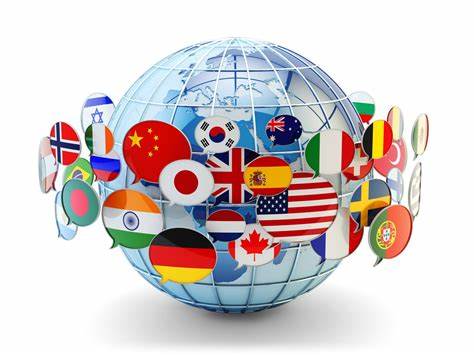You learn about politics and the socio-historical effects of globalisation through the study of international relations. You will gain knowledge of the many political structures and regimes that exist around the world, as well as how they connect to a variety of global problems like human rights, world poverty, climate change, global ethics, etc.
Getting a degree in international relations is not as easy as it seems. The most difficult task for any student is to submit an academic paper within strict deadlines. But there’s nothing to worry about. Help with Assignment is your go-to place to order your hassle-free assignment papers at any time. All you have to do is to hire a native expert by asking him to provide help with my assignment.
The Bachelor’s degree in International Relations includes courses in Economics, Politics and Government, Understanding Society, Public Policy, Business Behaviours, Global Conflicts, Global Security, and Environmental Sustainability. The majority of undergraduate programmes combine these topics in a way that is interesting and adopts a special strategy.
International Studies, Global Studies, International Affairs, and Global Affairs are other terms for International Relations (IR). Due to the relative youth of the field of international relations, academic methods, curricula, and course offerings can vary greatly amongst universities.
While some programmes in international studies provide courses that are quite comparable to those in international relations, others adopt a different strategy. The same is true for International Relations’ other titles as well as Global Studies. A fantastic approach to see what you will learn while earning your bachelor’s degree and assess whether or not that programme will support you in achieving your academic and professional objectives is by looking at the programme description.

Here are six strong arguments for starting a policy degree right away.
It’s Vital Right Now
Have you viewed a lot of news lately? Binge-watching current events programmes and taking time off to unwind are two activities that are frequently practiced. Observers from all around the world have taken an interest in the US election in particular. A more divisive election than ever before overshadowed Trump’s unexpected triumph in 2016. The rules of politics, or the decision to abide by them, are not what they once were.
Over the past ten years, there have been significant changes in the global political environment. The world now help with seems more unstable due to socioeconomic changes, globalisation, technological advancements, and knowledge of the climate problem. Colonial legacies and gender roles are evolving. Everyone was unprepared for the coronavirus epidemic, which came out of nowhere. We now think and live far differently than we did at the turn of the century.
Who is able to foresee, counsel, and plan for the upcoming, unavoidable seismic earthquakes that will rock the world? In a chaotic world, those who can think and behave morally and sensibly will succeed.
The Skill Set is Useful and Adaptable
the collection of abilities that put a Master of International affairs apart from the typical opinionated. A master’s degree trains students to think critically, write analytically, do in-depth research, engage in diplomatic debate and discussion, and express complex ideas on delicate subjects.
The environment and climate change, health, conflict resolution, or social justice are just a few of the interests you may have and want to investigate with these skills in hand.
You’re a Problem-Solver
A calling is frequently to work for the government or in a nonprofit. You’ll be eager to get started if you feel driven to contribute to the resolution of the basic problems currently plaguing our societies.
On the other hand, being a natural thinker and problem solver is insufficient. The specialised coursework, research, and experience that an international affairs degree offers will help you improve your problem-solving skills. Case studies and exercises for problem-solving are included in this degree programme. You will gain knowledge on how to analyse a situation, find the main participants, and develop solutions that balance conflicting demands in a complicated environment.
You Are Fascinated by Different Cultures and People
The word “international affairs” implies this. It’s an engaging way to spend your time getting to know other cultures and cooperating with them. Understanding the connections between various cultures is more challenging; in fact, it is one of the most important difficulties our species has encountered throughout history.
It’s possible that resolving problems and explaining concepts and regulations to a wide set of people is the most challenging component of the industry. On the other hand, you are interested in international affairs if you are curious about how people interact with one another and their environment.
You’ll Be Qualified for Many Different Jobs
Therefore, earning a degree in international affairs is a practical and timely way to advance your career. But what sort of employment could you obtain with those abilities? One benefit of working in this field is that every position offers unique, priceless experiences that will be beneficial to you in your career. You could take the same route from start to finish, or you can find unanticipated new responsibilities as a result of your successes along the road.
Popular graduate jobs in international affairs include:
Diplomat: You can represent the interests of your nation abroad through research, communication, and networking.
Analyst: Investigating, analysing, predicting, and planning political developments for the government, the media, or academia.
Lobbyist: convincing the public and the government of the importance of the interests of your organisation or NGO.
knowledgeable about intelligence: Working along with the military or security organisations to collect, examine, and report on global challenges.
Each of these jobs typically earns more than $70,000 annually.
You Have the Power to Influence Others
You want to give the people whose welfare you will be in charge of everything you can. The most appropriate course of action is to gain as much knowledge as you can from professionals in a demanding but encouraging setting.
You will be better able to provide solutions that respect people’s needs from their point of view if you have a deeper understanding of international relations and the networks of meaning and influence that exist between people, cultures, and states. In a world where political players, even the most well-intentioned cross-cultural personalities, can frequently be shortsighted, the importance of being sensitive and knowledgeable cannot be stressed.
Career Options for Graduates in International Relations
International relations graduates have a wide range of job options. Typically, career routes fall into one of three categories: non-profit, for-profit, or for-profit (NGO). Public, private (commercial) (government). Graduates of undergraduate programmes should possess a broad base of knowledge and cutting-edge abilities. The aforementioned description of career paths places graduates in a position to move on from jobs in government, the private sector, and charity.
People who work in this field typically change between different professional paths.
The most well-liked employment options for international relations students include:
Civil Service
The principal provider of public services is the civil service, which provides graduates in international relations with a choice of job options. The Department of Foreign Affairs, the Department of International Development, and the Ministry of Defense are all hiring.
Central Intelligence Agent
A career with the CIA is one of the safe havens for graduates in international relations. Although it takes a tough application process and is considered a great accomplishment to work in this field, possibilities do exist for graduates.
Political Affairs Officers
Your greatest option on this professional path is to join the Department of Political Affairs of the UN. Officers in political affairs dedicate their life to helping nations avoid war and settle disputes. In order to promote international peace, they try to offer peaceful political solutions.
Diplomat
Most graduates in international relations choose to work in diplomacy. In order to represent their nation in its relations with foreign organisations and countries, diplomats are appointed by their nation’s government as ambassadors. They aim to develop an international friendship while defending their nation’s interests.
International Affairs Officer
Graduates in international relations may also choose to join the armed forces as international affairs officers. The military forces of any nation are essential to carrying out its foreign policy.
Advisor For Research
You are responsible for conducting research, gathering papers, presenting the findings, and offering recommendations as a research consultant. International research communities are always seeking exceptional consultants.
A career in international relations is very marketable and rewarding. It is impossible to exaggerate how many benefits there are to enrolling in this course. The details in this article should convince you to pursue an international relations degree.



